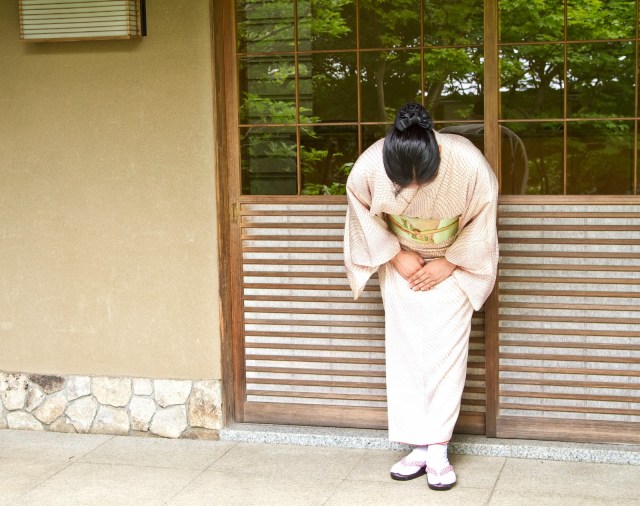
Serving diners since the days of the samurai and once loved by famous writers like Natsume Soseki, this long-standing business will soon be no more.
It’s been one year and two days since coronavirus was first detected in Japan on 16 January 2020. Since then, people around the country have ridden the rollercoaster of the worst pandemic of our times, screaming in their hearts all the way, with no end in sight as Tokyo and a number of other prefectures buckle down under a second state of emergency amidst a third wave, with record numbers now infected.
The year has hit everyone hard, and with diners refraining from eating out like they used to, people working in the restaurant industry have been badly affected, forcing many to shut up shop. One such business made news recently, as the drop in local and international customers has now spelled the end for Kawajin, a restaurant in Tokyo’s historic Shibamata district, which has been serving diners for 231 years.
▼ Kawajin
Founded in 1790, during the Edo period (1603-1868) when samurai clans were scattered around Japan and the country was ruled by feudal lords, Kawajin boasts a long list of famous diners. Japanese writer Natsume Soseki was one of them, even mentioning the restaurant by name in his 1912 novel, To the Spring Equinox, as did fellow fan Seicho Matsumoto in his 1962 novel Kaze no Shisen (The Wind’s Gaze).
It even served as the wedding banquet location for a scene in Otoko wa Tsurai Yo–a popular Japanese film series commonly known as “Tora-san” after the name of its leading character–which ran from 1969-1995. With such a long and revered history, the closure came as sad news for many when it was announced.
▼ Out of all the restaurants that have sadly had to close due to the pandemic, Kawajin is the oldest.
創業231年の歴史に幕
— なかじま (@JETCHOP) January 16, 202134年ぶりに来たよ #川甚 pic.twitter.com/0HDmKptJxw
Famous for freshwater fish cuisine, including carp and eel dishes like kabayaki, butterflied eel with a sweet sauce served on a bed of rice in a rectangular box, Kawajin’s closure has some people expressing their concerns over the future of Japanese food culture. Not many restaurants can boast such a long history of expertise in serving up these freshwater delicacies, which came into popularity during the Edo period.
▼ Kawajin, serving eel and carp since the 18th century.
柴又の川甚、閉店してしまうんだ……コロナめ… pic.twitter.com/G83LAyMQCh
— pict(@M7577B) January 16, 2021
葛飾柴又の川魚料理屋・川甚の閉店については今朝の某新聞一面にも大きく出ていたな。江戸川の調査を取材したりした際に何度か寄ったけど大型バスで来る観光客が多かったようなので今の状況なら仕方ないだろう。もっといろいろ食べておけばよかった。ちなみに仕事中の昼酒ではありません。 pic.twitter.com/OxxFmWac9w
— 工房うむき/ワンフェスは中止 (@kobo_umuki) January 17, 2021
However, the eighth-generation president of the restaurant, Kazuki Amamiya, says he had no choice but to close the restaurant due to the drop in customers brought about by the pandemic. The 69-year-old said he regretted the closure, but even after cutting down on utility costs and making full use of government support entitlements, they were at their absolute limit and nothing could help them out of their dire financial situation.
▼ Amamiya (top) appeared in the newspaper, above a photo of the restaurant taken in 1905.
流石!#東京新聞#川甚 pic.twitter.com/BqI0WaKWrs
— ruu (@ruukenta) January 17, 2021
Speaking to the media, Amamiya said:
“It’s a pity that I couldn’t keep the baton going from the previous generation; it ended with my generation.”
He went on to say he has no grudge against the coronavirus, and though he regrets having to close, he doesn’t regret the decision as it was one that had to be made. However, many others were filled with remorse for him, leaving comments online like:
“Whaaa? I can’t believe this!”
“Such a shame–I always wanted to go there!”
“So sad to hear even Kawajin couldn’t survive this tough period.”
“Centuries of history now gone forever.”
“As a lover of Shibamata, I’m so sad to hear this.”
“Without tourists and tour groups, it’s tough for businesses like this to survive.”
Kawajin has been popular not only with tourists but also locals, who used to hold big events like weddings and memorial services at the restaurant. However, the coronavirus pandemic has caused local customers to decrease as well, due to advisories from the Tokyo Metropolitan Government to stay home as much as possible.
The historic restaurant will close its doors for good on 31 January, sadly joining Fujimisou, a longstanding hot spring resort ryokan in Aichi Prefecture, as two of the country’s oldest coronavirus business casualties.
Source: Kawajin, Tokyo Shimbun via Hachima Kikou
Top image: Pakutaso
● Want to hear about SoraNews24’s latest articles as soon as they’re published? Follow us on Facebook and Twitter!

No hay comentarios:
Publicar un comentario